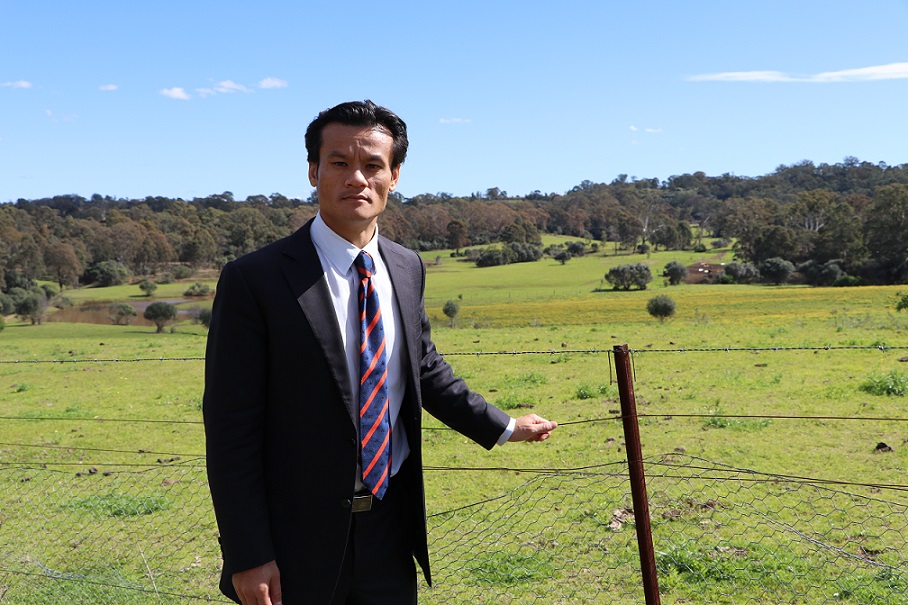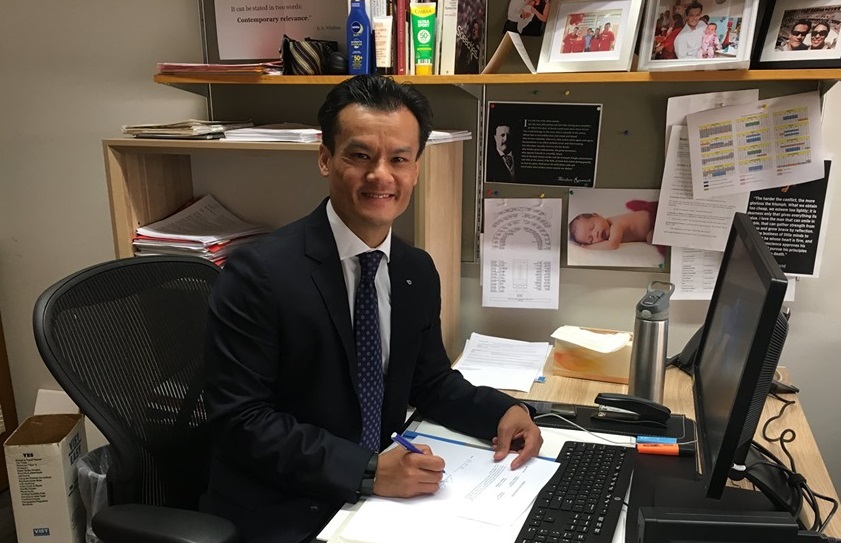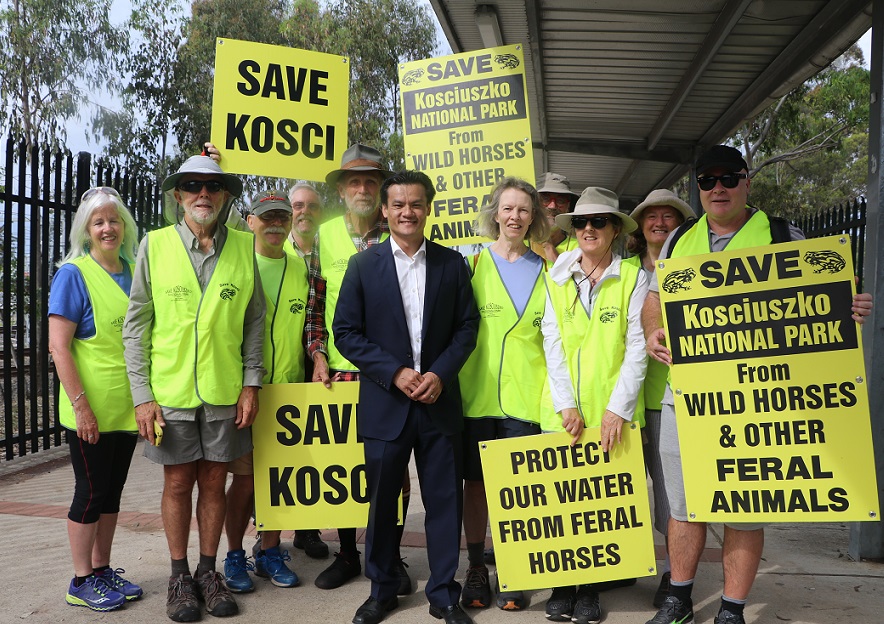
Recruiting new branch members is not only good for political parties but vital for a healthy democracy, says MP Anoulack Chanthivong. In the wake of the branch stacking scandal in Victoria, the state member for Macaquarie Fields has agreed to discuss how Labor Party branches operate and the challenges posed by the emergence of new technologies, especially social media.
Mr Chanthivong, who was first elected to parliament in 2015, says there’s nothing wrong with recruiting new members “if it’s done according to the rules, or people are joining of their own accord and they have not been coerced, or fraudulently signed up.
“It’s about legitimacy; I don’t think it matters where they come from, but if people want to join and join for the right reasons, of course you will welcome it
“So if you legitimately want to join the party to help the party to win power, to support the party, of course you’re welcome,’’ he says.
“In the recent Victorian case obviously there were some things that weren’t right.
“If it’s abnormal, of course it gets noticed – if you’re a business and suddenly your revenue goes up by a 1,000 percent, you’re going, what’s going on here?
“So that’s the key, determining the legitimacy of these new members.’’
There are a number of Labor Party branches in the electorate of Macquarie Fields, which covers parts of north Campbelltown and southern parts of Liverpool.
The main branch covers what may be called the heart of the electorate in Ingleburn and Macquarie Fields.
Mr Chanthivong says there’s a very good reason for recruiting new members to a political party: staying alive.
“It’s important for any organisation, not just political parties, to continue to expand its reach,’’ he says.
“To survive you have to have people involved, spreading the message, dedicating their energy and time on issues people are interested in.’’

The Labor MP says there are more people than ever only interested in single issues such as climate change, which has made it harder than ever for mainstream political parties to recruit new members.
“It is getting harder than ever to recruit genuine members with so many young people attracted to such single issue causes,’’ he says.
“And any organisation must have renewal through young people joining and bringing in new ideas.
“Younger people are the future of the organisation, the future of the country – but it’s their future as well.’’
The actual process of joining the Labor Party is simple as ABC: You pay your membership fee and join online, which is how most people do it.
But to actually get people interested enough to join is becoming a huge challenge for all community organisations, and political parties are no exception.
The answer, says Anoulack Chanthivong, is to work harder.
“As my great political hero, Gough Whitlam, would say, it’s all about contemporary relevance,’’ he says.
“To expand the party’s reach you’ve got to have contemporary relevance in your approach, your policies and your ideas.
“No doubt the advent of technology has changed the way we interact, so using technology is fundamental in order to understand how people get their messages these days.
“People now get their news on a much different platform than they used to, which used to be with newspapers.
“And it’s always on the go.
“So how do you compete with Twitter, Facebook, Google, apps, news online – that’s got to be part of the thinking of any political party, in identifying people who could be part of the party and how you recruit to make sure the party continues to have a strong membership base, to work on campaigns, spread the message.’’
One of the important roles of a Labor branch is to pre-select the candidate to represent the party at elections.
And it’s the area where things can go wrong if branch stacking takes place by an ambitious rival to an incumbent MP.

“We’re a democratic political organisation and people join the party for a range of things, not just to vote in a pre-selection,’’ says Mr Chanthivong.
“They want to be part of a movement, part of a cause – there are issues advocated by a particular party that are important to them.
“So people join a party not to gain something but to be part of something bigger than themselves.
“Like all MPs I am always open to a membership base, who will determine who will represent them.
“The Labor Party is not a mutual admiration society and nor should it be.
“And it’s a good thing that people are able to choose their local representative, hopefully someone local, someone they know, somebody who’s got runs on the board, also someone who’s going to advocate on the issues that matter to them.
“I love my community, this is my home since 1988,’’ he says.
“I believe in certain things and I don’t retract from those, and people don’t always have to agree with me, and that’s fine.
“It’s a contest of ideas, it’s a contest of policy, and we must be able to prosecute the case among us and in the community.’’
